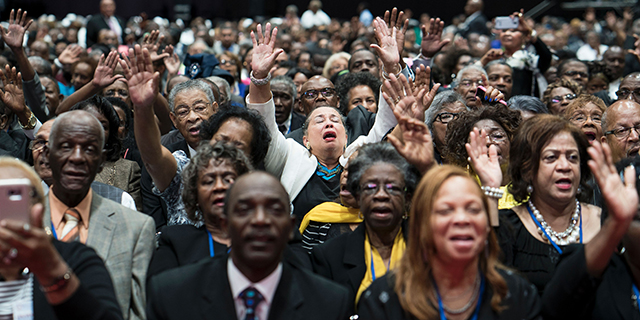Climate change disproportionately affects members of disadvantaged communities and groups who face socio-economic inequalities, including many people of colour. As the United States becomes more racially and ethnically diverse, promoting public engagement with climate change across diverse audiences is becoming increasingly important.

Prior research has shown that people of colour in the U.S., including Hispanics/Latinos, African Americans, and other non-White racial/ethnic groups, are more concerned than Whites about climate change. Hispanics/Latinos, in particular, tend to be the most concerned.
The Centre for Climate Change Communication at the George Mason University in Fairfax, Virginia, in a recent study used data from two Climate Change in the American Mind surveys conducted in 2019 to examine the distribution of Global Warming’s Six Americas, willingness to engage in climate activism, and voting issue priorities across the three largest racial/ethnic groups in the U.S.: non-Hispanic/Latino Whites, non-Hispanic/Latino African Americans, and Hispanics/Latinos.
Americans can be categorised into six distinct groups based on their beliefs, attitudes, and actions related to global warming. The “Alarmed” are the most certain that global warming is happening, are most concerned about it, and are most supportive of climate policies and actions. The “Concerned” also think global warming is happening and view it as a serious threat but tend to perceive it as more distant and less urgent than the Alarmed.
Nearly six in 10 Americans are either Alarmed or Concerned. The “Cautious,” “Disengaged,” and “Doubtful” are each at different stages of understanding global warming and are less engaged with the issue. The “Dismissive” tend to reject the reality and threat of human-caused global warming and oppose taking action to address it.
The study finds that Hispanics/Latinos (69%) and African Americans (57%) are more likely to be Alarmed or Concerned about global warming than are Whites (49%). In contrast, Whites are more likely to be Doubtful or Dismissive (27%) than are Hispanics/Latinos (11%) or African Americans (12%).
Compared to Whites, Hispanics/Latinos and African Americans also report greater willingness to join a campaign to convince elected officials to take action to reduce global warming. More than one in three Hispanics/Latinos (37%) and African Americans (36%) say they would “definitely” or “probably” join a campaign, while about one in five Whites (22%) say so.
The researchers also asked Americans how important 29 policy issues will be in determining their vote in the 2020 Presidential Election. Among registered voters, many Hispanics/Latinos say global warming will be “very important” to their vote (57%; ranked 6th) – which is comparable to the importance of immigration reform (57%; ranked 7th). While about half of African Americans say global warming will be “very important” to their vote (53%), it ranks 16th in their list of issue priorities. About one in three Whites (35%) say global warming will be “very important” to their vote (ranked 17th).
Research suggests that people of colour may be more concerned than Whites about climate change because they are often more exposed and vulnerable to environmental hazards and extreme weather events. One particularly important example is that people of colour are more likely than Whites to be exposed to air pollution.
Inequitable exposure to environmental problems such as this may also explain, at least in part, why Hispanics/Latinos and African Americans report greater intentions to engage in climate activism.
Compared to Whites in the U.S., people of colour are less politically polarised in their views about climate change, and are less likely to identify as Republican or politically conservative.
For instance, the researchers’ 2019 data show that 46% of Whites identified as Republican (or leaning Republican) compared to 19% of Hispanics/Latinos and only 6% of African Americans. In fact, when the survey statistically control for differences in party identification between racial/ethnic groups in the analyses, African Americans are no more likely than Whites to be Alarmed or Concerned about global warming.
Hispanics/Latinos, however, are still more Alarmed or Concerned than are Whites, even when controlling for differences in party identification. Thus, differences in political views between Whites and people of color may explain some of the racial/ethnic differences in concern about and engagement with climate change.
Understanding how various groups of people perceive and respond to climate, and why there are differences between groups, can help improve communication about climate change across diverse audiences, and more effectively support public engagement and action.
